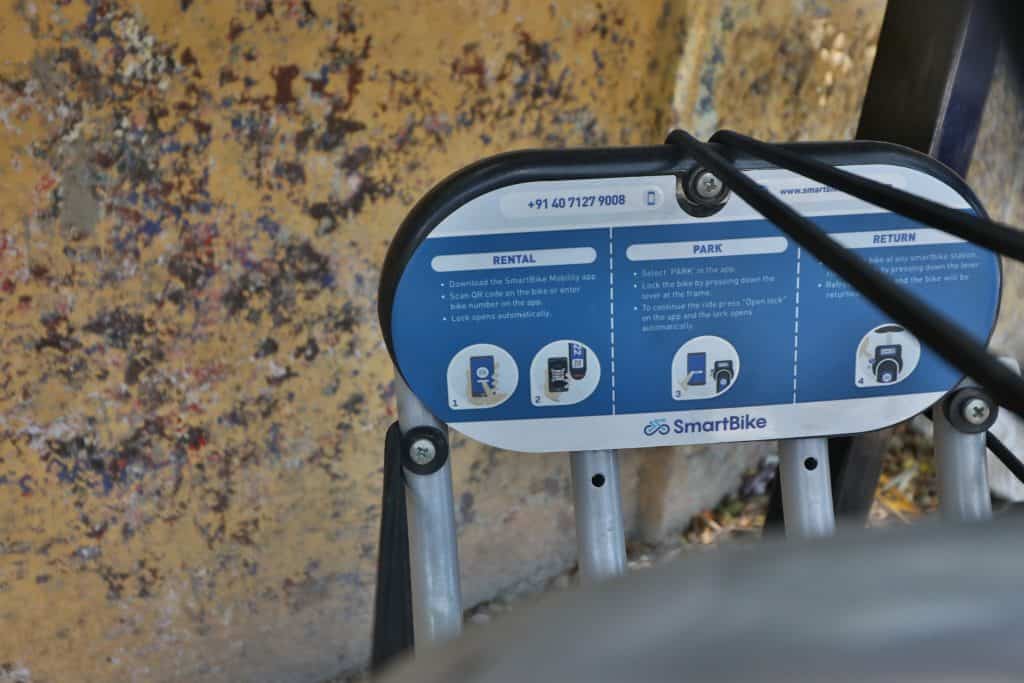The last decade has seen an enormous growth in private vehicles in Chennai, with the city home to around 42 lakh two-wheelers and 88 lakh cars in the city according to data from the State Transport Department. The steady increase in number of vehicles has brought with it several problems such as congestion, air pollution and road accidents.
Waking up to the ballooning problems created by this explosion of vehicles as also the mobility needs of those who cannot afford private modes of transport, there have been efforts to improve public transport and add new modes for people to get around the city. The Chennai Corporation has formulated a Non-Motorised Transport policy for the city that takes into account pedestrians and cyclists.
Public bike-sharing in Chennai
Several cities across the country have embraced cycle-sharing in the last five years. Commercial services such as Ola’s Pedal, Yulu and Zoomcar as well as public bike sharing systems can be found in Delhi, Bhopal, Mysuru and Bengaluru and have met with varying degrees of success.
Chennai got on to the cycle-sharing train early this year with the launch of the public bike sharing system with SmartBike. At the time of its launch in February, six locations were earmarked, where cycles could be rented at a nominal hourly charge. The programme was adopted as part of the Chennai Smart City mission and has grown ever since.
The SmartBike sharing system works on the basis of an app that must be downloaded on to your smart phone. The bikes are placed in docking stations across various locations. The bikes can be accessed via an app. The app requires users to enter their personal information and payment details. Credit and debit cards are the payment methods available.
Once the details are entered and the payment method has been authenticated, the app provides a unique QR code to be scanned for the bikes to be unlocked. If the bike is to be parked during the course of the ride it must then be locked manually. On completion of the ride the bike must be returned to a docking station.
The bike rentals have a time bound plan and a subscription plan to choose from. The time-bound plan charges Rs 5 for the first hour and Rs 9 for every 30 minutes after that. The subscription plans are for a day, one month and three months at Rs 49, RS 249 and Rs 699 respectively. A charge of Rs 200 is levied on users who fail to return their bikes to the docking station on completion of the ride.
Numbers and reception so far
The initial launch of the smart bikes in Chennai covered six spots. In the months since then, the smart bike network has grown in the city. According to data from the Corporation of Chennai, the smart bikes fleet is currently 370 strong. The number of docking stations stands at 37. The app has seen a total of 14638 registrations in the city since the launch. The smart bikes have had 45407 rides so far at an average of 252 rides per day across all locations.
Check the map below to find a docking station near you:
[flexiblemap src=”http://data.opencity.in/Data/Chennai-Cycle-sharing-Locations-1.kml” width=”100%” height=”400px” ]
Source: Chennai Smart City Limited
“I tried the Smart Bike for a ride along the Marina soon after the launch. The bike itself is of good quality and offers a nice riding experience. I did have some trouble getting the app to work properly and understand the various functions on the app. There is definitely a learning curve there,” says Akash R, a cycling enthusiast.
Not for all
While the cycle sharing network has grown over the past few months, a key question is one of inclusivity. The cycles can only be accessed via the use of a smartphone and an app. This excludes a large segment of the population who are in need of accessible public transport and NMT options. This also hampers the ability of the bike sharing system to grow into a reliable mode of last mile connectivity.
“I have seen these cycles stationed here over the past few months. But none of us know how to use it. At first I thought the private companies have placed it for their employees. But then we were told it was for use by the public. I don’t have a phone and I don’t know how to read so we walk past the bikes sitting idle but can’t use them even if we want to go a short distance,” says Seethalakshmi, a flower seller in Pondy Bazaar.
The lack of availability of instructions in the local language is another barrier in using the app. The payment method excludes options such as UPI, Google Pay, BHIM and Paytm which are used by many today.
While the idea of a public bike-sharing network is long overdue in Chennai, the system set up has a long way to go to cater to the mobility needs of the people. The bikes and docking stations have been set up in areas with high foot traffic such as Marina Beach, T Nagar and Anna Nagar, but the ‘app-only’ access and essential knowledge of English means that many who could have benefitted from cycle-sharing are left out of the purview of the system. Smart solutions to Chennai’s connectivity needs must be rooted in ground realities of the users it seeks to engage.
